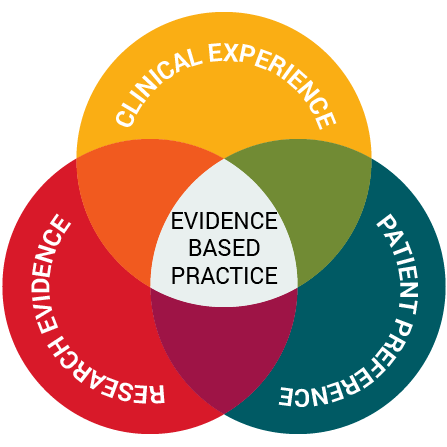You flinch in your lumpy couch on a weekday afternoon. Your therapist texts you to find out how your day has been. You tell her the usual: work is as monotonous as ever, you're exercising somewhat regularly for around 20 minutes and not eating as many cookies as you did earlier. Your favorite TV series announced it's last season, and you're both excited and upset. Then, you divert your attention to a better thought, analyze a series of thoughts, and monitor your progress based on exercises that your therapist recommended.
A few days later, you find your thoughts becoming a mess all over again. You coil on your couch, shakily pull up a warm blanket, and take a deep breath. You look for help searching apps in the App Store that help you to calm you down.
Welcome to tech-powered evidence-based psychotherapy: Artificial Intelligence (AI) is here to help!
Why AI for Evidence-Based therapies?
The number of people in the U.S. with mental health concerns- whether big or small, has doubled in the last decade. The U.S. spends $2.4 trillion on mental health annually, 1 in 5 people have a mental illness in this country, and up to 74% of mental health problems begin to occur by the age of 24.

Now, the question arises that if such a huge population faces these problems even after a hefty amount being spent to benefit them, why are they still hurting?
The answer is several factors contribute to this issue of poor mental health. Many people cannot afford treatment and medication, and it's often hard to find a trained therapist who can specifically cater to individualized issues. Most importantly, the stigma around mental health is so big that many people aren't willing to admit they need help with their psychological disorders. Whatever the case may be, it's clear that a more powerful and rigorous plan needs to be implemented in combating mental illnesses.
This is where Artificial Intelligence comes to picture. AI aids in the psychological recommendation and helps recognize effective areas, curate genograms, determine the intensity of self-identification, examine cognitive interaction patterns, and achieve self-awareness and redefinition.
How can AI help in Evidence-based Therapies?
Therapeutic bots are a form of artificial intelligence that uses machine learning to complement the efficacy of evidence-based psychotherapies like Dialectical Behavioral Therapy (DBT), Acceptance and Commitment Therapy (ACT), and Cognitive Behavior Therapy (CBT). They are composed of neural networks designed based on human brain neurons.
Neural networks are a set of algorithms that are curated to process sensory data. As data is inputted, therapeutic bots access its database and release an effective response to the problem. They adjust themselves based on several data inputs over the weeks, hence recognizing the user's psychic pattern.
The most important aspect of the bot is that it implements different Evidence-Based Treatments like Cognitive Behavior Therapy and Dialectical Behavioral Therapy to improve the user's mood. This is how it works:
- It asks you to change a negative thought into something more positive (a more direct form of CBT)
- It asks you to accept yourself, the crisis you are in, and react effectively. In short, it teaches you acceptance, mindfulness, and effectiveness (a more direct form of DBT).
-
Provides videos and lessons to acquire toolkits that help.
The bot keeps a check on its users daily, for example, asking users to fill up the diary card daily. It tracks users' moods based on their responses and projects them on weekly graphs. The bot learns through the users' daily responses and will detect immediately when something is not right based on the mood map it has stored in its database.
Take-Home Message
AI is not a substitute for a psychologist, and the approach may not work for everyone.
When it comes to CBT and DBT, there are about 20+ years of case studies and evidence that suggest its ability to help those suffering from mental health issues.




